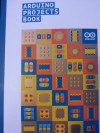Currently reading
Jennifer, Gwyneth & Me: The Pursuit of Happiness, One Celebrity at a Time
Mr. Mercedes
Arduino Projects Book
Microcosm: E. coli and the New Science of Life
 Microcosm is a history of E. coli but more than that, it’s a history of modern biology. So much of what we do in the lab today depends on these little bacteria that looking at biology through the lens of E. coli lends itself well to discussing almost all of modern microbiology. It also includes a few philosophical musings and, at the other end of the spectrum, some practical insight into the job of a microbiologist.
Microcosm is a history of E. coli but more than that, it’s a history of modern biology. So much of what we do in the lab today depends on these little bacteria that looking at biology through the lens of E. coli lends itself well to discussing almost all of modern microbiology. It also includes a few philosophical musings and, at the other end of the spectrum, some practical insight into the job of a microbiologist.I picked up Microcosm in part because the description compares the book to Lives of a Cell, which I loved. So when they Microcosm turned out to be less elegantly written, less thoughtful, and clunkier in its transitions from philosophy to real world observations… let’s just say this book and I started out on the wrong foot. Fortunately, the rest of the book, while different from what I expected, was still able to mostly win me over.
Some of the introductory material was explained very well, with analogies that captured the important information without implying anything inaccurate. Although I can’t be sure, I felt like other parts of intro weren’t explained well enough for someone without a science background to pick up on the important things. However (and this is the part that makes this a 4 star reviews) the more cutting edge information and all of the fun facts later in the book were very well done. I already know something about the basics of E. coli and I still learned all sorts of new things about how they function and about how they contribute to science. I also thought it was brilliant and unusual to include some details of the lab work which involves E. coli. For that reason, I would particularly recommend this to someone considering work in microbiology, since it gives some insights into what that’s like.
This review first published on Doing Dewey.






